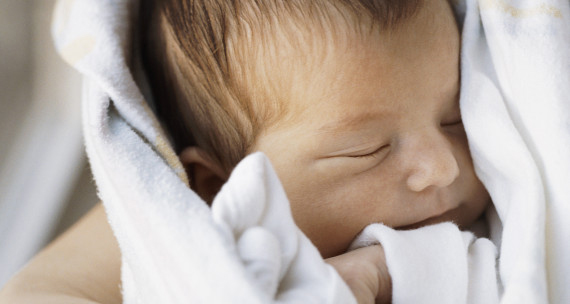On one hand, it’s encouraging to see the international community’s outrage over the weekend at what can only be described as the euthanasia of a perfectly healthy, yet—tragically “unwanted”—resident of Copenhagen, Denmark named Marius.
On the other hand, the fact that Marius was an 11-foot-tall giraffe puts things into perspective.
 Marius, a giraffe born in captivity, found himself in the lethal position of “unwantedness” by possessing what Animal Rights Sweden called, not “interesting enough,” genes, and his very existence posed the potential threat of inbreeding, which if you’re running a zoo, is apparently problematic.
Marius, a giraffe born in captivity, found himself in the lethal position of “unwantedness” by possessing what Animal Rights Sweden called, not “interesting enough,” genes, and his very existence posed the potential threat of inbreeding, which if you’re running a zoo, is apparently problematic.
Despite attempts to spare Marius’ life that included lucrative offers by individuals and at least one European wildlife park, along with “Save Marius” petition that garnered 27,000 signatures, “Marius was fed some rye bread at 9.15am and was killed shortly after by a shot in the head with a bolt gun,” to quote The Guardian of London.
But the kind of civility shown in these rescue efforts—and reflected in the kind of sentence in one of the world’s most respected newspapers that indirectly humanizes a giraffe—was also matched by multiple death threats against zoo officials, one of which threatened the children of two zoo administrators.
It appears the world isn’t buying into the whole idea of “unwanted” after all. At least not where giraffes are concerned.
Two and half years ago, 56 exotic animals broke loose from a private citizen’s backyard in Zanesville, Ohio, leading to what has become known as the “Zanesville Animal Massacre,” which included the killing of 18 rare Bengal tigers.
I was working at a restaurant with a friend of mine that night, and I remember being floored, not so much by the news, but by her reaction. It was the kind of reaction a person and a society tends to have at pivotal moments in history: the bombing of Pearl Harbor, the assassination of President Kennedy, the terrorist attacks on the World Trade Center.
Might I remind you, Marius and the Zanesville Animal Massacre are both stories about animals.
Is there no corresponding outrage when it comes to human beings?
Worldwide unrest occurs overnight when a zoo takes “unwanted” life. Society shudders at the thought of “massacring” animals that, now on the loose, pose a lethal and immediate threat to human life. Death threats against children are made in the name of the protection of animals.
And yet, the value we set on a human life rests solely on her mother’s decision. “Is my child wanted?”
We don’t allow ourselves the personal and societal outrage that this “choice” by a mother (and often by influences other than the mother herself) leads to the death of over 3,000 human beings every day in the United States alone, but we do allow ourselves outrage when it comes to giraffes and Bengal tigers.
Let me add the caveat here that I love animals. At one point in my life, I proudly subscribed to Cat Fancy, and I’m about 10 times more excited than my 3-year-old daughter every time we visit the Columbus Zoo—where we have an annual pass. I hope she and her baby sister will learn to see every window into God’s glory that giraffes, Bengal tigers, and whitetail deer have to offer. I hope they learn that from me.
Deeper than that, as a believer, I’m convinced by Scripture that my treatment of animals has plenty to say about my heart. I’m thinking here about Proverbs 12:10, which says, “Whoever is righteous has regard for the life of his beast, but the mercy of the wicked is cruel.”
But I am bound and determined to make the most of opportunities like Marius’ afford us, to expose the fact that the emperor isn’t wearing any clothes. The elephant is in the room, whether you want him there or not.
Wantedness didn’t change the fact that Marius was a giraffe. Wantedness didn’t determine Marius’ inherent giraffeness. Unwantedness didn’t un-giraffe him, it led to his execution.
If you, Planned Parenthood, or my congressman can explain to me how wantedness determines humanness, I’d like to hear it. Until then, let’s do everything we possibly can to protect life—starting with the humans.
About Heartbeat International
Heartbeat International is the first network of pro-life pregnancy help organizations founded in the U.S. (1971), and now the largest and most expansive network in the world. With 1,800 affiliated pregnancy help locations—including pregnancy help medical clinics (with ultrasound), resource centers, maternity homes, and adoption agencies—Heartbeat serves on all six inhabited continents to provide alternatives to abortion. For more information, see www.HeartbeatInternational.org.
www.Facebook.com/HeartbeatInternational
by Jay Hobbs, Communications Assistant
